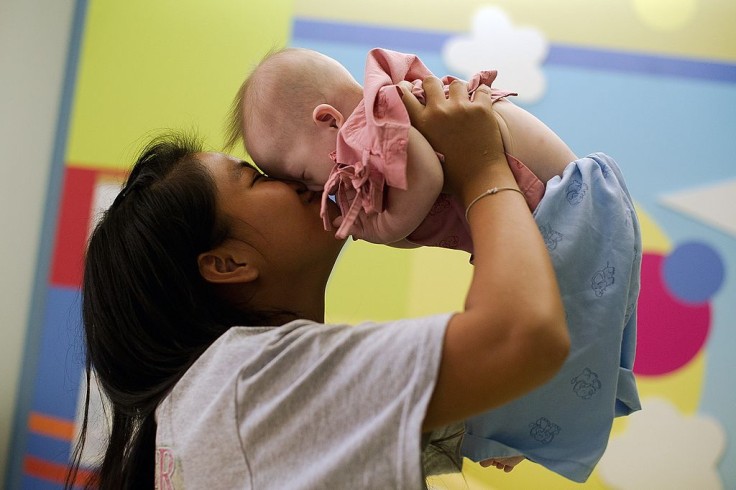
When parents are told they will have a child, most parents are shocked. After all, doctors would usually explain that kids with Down Syndrome would have developmental delays and various health complications.
There are around 6,000 babies born with Down syndrome per year. According to UTSouthwestern Medical Center, although every baby with Down Syndrome is different, parents often have similar concerns.
Read Also: COVID-19 Measures: Children in Shanghai Wearing Hazmats and Segregation from Parents Shock the World
Here are things to expect when you are a parent of a child with Down syndrome:
Distinct features
Care providers can usually tell if a baby has Down syndrome based on physical characteristics like eyes that slant upward, a single crease across the palm, or a large gap between their first and second toes.
Other features include low muscle tone, flatter facial features, shorter neck, overall height, smaller ears, hands, feet, and white spots on the colored part of the eyes, as per the Center for Disease Control and Prevention (CDC).
However, not all people with Down Syndrome will have these features. Doctors would usually advise parents that although they see the physical characteristics of babies with Down syndrome, they could not confirm it without a blood test that would validate the extra chromosome. Since babies with Down Syndrome have low muscle tone, they will tend to be floppy when you pick them up.
Longer hospital stay
Babies with Down syndrome are most often diagnosed with health complications. Babies with heart or thyroid problems may require extended hospital stays to monitor and treat in the neonatal intensive care unit (NICU).
Doctors usually recommend three tests:
- Blood test for thyroid tests. Thyroid problems occur in around 10 percent of children and 50 percent of adults who have Down Syndrome. Delayed growth, heart problems, and hearing loss are expected in children with low thyroid hormones.
- Blood count. Blood complications are also common in babies with Down Syndrome. Blood count tests are done to check if your baby has a blood disorder.
- Echocardiogram. Around 50 percent of babies with Down Syndrome have heart problems. A test that uses sound waves to check heart condition is usually done to diagnose the condition.
Several Medical Appointments and therapies
As babies with Down Syndrome have delayed development and several health conditions from heart disease to ear infections, they need specialists. Medical appointments would seem like a norm to them. The earlier the visit starts, the better early diagnosis, intervention, and monitoring.
Developments delays would also be common; hence, having a therapist to manage language disorders, behavioral delays, and intellectual disability would be necessary.
Several facilities can help parents with these concerns. The Down Syndrome Clinic at Children's Health, for example, provides developmental assessments and recommendations for kids. It also offers genetic counseling to assess the risk of recurrence and reproductive options, parent-to-parent support, and networking opportunities. It also provides other support like psychosocial assessment and physical exams.